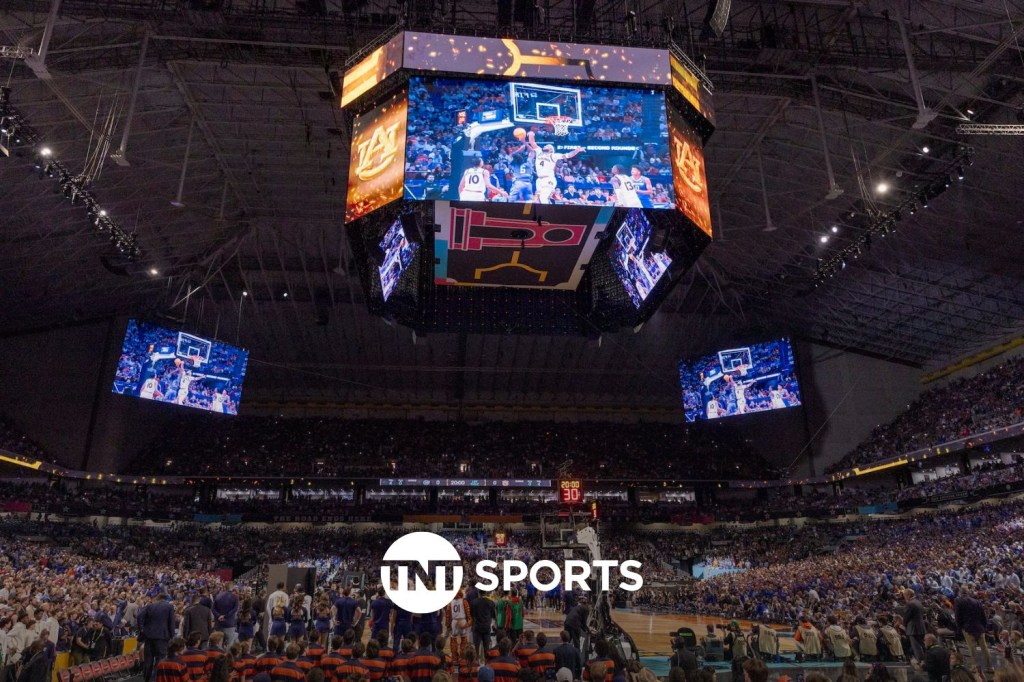
Beyond wins and losses, sports organizations have lofty goals, particularly when it comes to ticket sales. Teams are constantly working to build a loyal fan base and increase attendance, so to address this challenge, many have begun outsourcing to tech companies that help them expand their reach.
One of those teams is the Dallas Mavericks, who work with Semcasting, a data-as-a-service company that creates predictive models for potential customers.
“We are a compiler of databases,” explained Geetha Neelakantiah, vice president of business development and partnerships for Semcasting. “Some is public information we’re pulling in, some is survey information, some is a variety of governmental agencies that make the data public. What we do is we add our smarts because we have the tools to create inferences based on income and other data elements.”
Those inferences help develop a 360-degree view of the customers to analyze the best way to market to them.
Semcasting builds profiles by taking into consideration fans’ income, home values, interests and distance to the arena. The company also addresses Customer Trade Areas using Mobile Footprints, by mapping smartphone signals and identifying patterns and “hot spots” in the fan base.
SEE MORE: How Teams Can Use Social Video Franchises to Tell Unique Stories
“Knowing who’s attending an event or game or retail location and finding them and identifying who they are, marketers are able to provide better programming to them so next time they come, it could be catered to those coming to the event so it’s more customized,” said Neelakantiah.
The Aspire Group is another organization that works with teams to optimize ticket sales and fan experience. According to Bill Fagan, chief operating officer for the Aspire Group, the main goal in ticket marketing is to retain fans.
“If we’re losing existing fans, ticket holders or donors or whoever, then we’re never going to grow,” Fagan said. “It’s very challenging to acquire new fans. Analytics indicate that if you’re not retaining at least 85 percent of your fans, you won’t get back to your previous year’s total.”
Finding and retaining fans is particularly important for teams that may be struggling to earn wins, Fagan said.
“Hope is not a strategy, and winning is not a strategy,” he said. “You can’t just hope that team is going to turn it around. You have to work twice as hard to retain people and make sure you don’t lose them. There’s nothing more important than taking care of the people that are attending.”
[mc4wp_form id=”8260″]
In order to preserve those existing fans, as well as identify potential new fans, the Aspire Group uses a variety of tactics, ranging from conducting surveys to utilizing data aggregation technologies.
That technology is what allows organizations to draw conclusions based on existing information.
“What marketers are attempting to find is lookalikes,” Fagan said. “They say, ‘Here’s what our average fan looks like in their demographic and behaviors. Let’s find other people that behave in similar ways.’”
“Knowing that information — how often a person purchased with their demographic — helps identify other individuals,” Neelakantiah added. “It does give us more information about how a sports team is able to develop different marketing programs and increase sales on different segments.”
LISTEN: Rob Perez’s Journey From Ticketing Entrepreneur to NBA Personality
In order for the team to deliver customized advertising to specific audiences, organizations like Semcasting aim to access the “unknown fan” — someone who has attended a game or visited the team website, but isn’t a regular buyer — an ideal customer for the team to zero in on. Once data is used to nail down the demographics of the “unknown fans,” advertising can be specially targeted to fit their needs and hopefully turn them into regulars.
According to a testimonial from Veronica Cantu, director of sales marketing with the Mavericks, the partnership with Semcasting has been beneficial.
“Thanks to Semcasting, we now have a deeper understanding of our fan base and clearer solutions on how to customize and optimize our engagement with them,” she said. “When our fans buy single tickets, season tickets or simply visit our website, Semcasting has helped us discern who those unknown fans are and where they spend their time, both online and offline.”
With the help of Semcasting, the Mavericks saw a 380 percent return on investment, based on a $25.30 cost per acquisition.
[mc4wp_form id=”8260″]
Looking ahead, Semcasting hopes to tie it all together by identifying the most effective forms of marketing, using attribution to connect sales back to the relevant marketing channel.
In a broader sense, the next step for data analysis companies is making fan identification resources more universally affordable and available, particularly for smaller market organizations with less manpower, according to Fagan.
“The challenge for entertainment properties is getting the right ROI,” he said. “Unfortunately, the resources might not be available to invest in the technologies, so there is an increased demand for third party, technologically-based affordable solutions… That’s where we put our heads, which is servicing the entire world of live event ticketing and understanding that an empty seat is a cancer to the brand.”



![[Subscription Customers Only] Jun 15, 2025; Seattle, Washington, USA; Botafogo owner John Textor inside the stadium before the match during a group stage match of the 2025 FIFA Club World Cup at Lumen Field.](https://frontofficesports.com/wp-content/uploads/2026/02/USATSI_26465842_168416386_lowres-scaled.jpg?quality=100&w=1024)
![[Subscription Customers Only] Jul 13, 2025; East Rutherford, New Jersey, USA; Chelsea FC midfielder Cole Palmer (10) celebrates winning the final of the 2025 FIFA Club World Cup at MetLife Stadium](https://frontofficesports.com/wp-content/uploads/2026/02/USATSI_26636703-scaled-e1770932227605.jpg?quality=100&w=1024)












